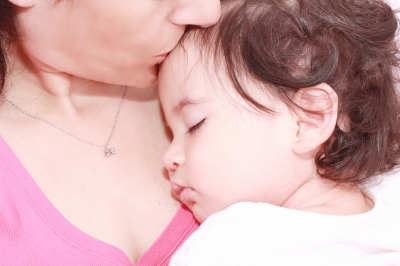Have you recently had a baby? The first year might be hard on parents who are recovering from pregnancy and birth, dealing with sleepless nights and getting to know their newborn. It’s hard to imagine that this particular time period, which your child won’t consciously remember, has such a significant impact on his/her future development — but it does! Are you wondering what you can do to positively shape your child’s future in the first 12 months? Read on.
1. Helping your baby grow into a well-adjusted child
[showmyads] Infant development specialist Dr Michael Lewis presented research highlighting the importance of a mom’s role, at a meeting of the American Academy of Pediatrics. Babies who have a responsive mother are building social, intellectual, and motor skills. Dr Lewis said “the single most important influence on a child’s intellectual development is the responsiveness of the mother to the cues of her baby.” This refers to a caring response when a baby cries, and can be interpreted as an argument against so-called “infant sleep training” — and in favor of picking a crying baby up!
2. Preventing obesity
According to a study published in The Lancet in 2002, babies who are breastfed have a significantly lower risk of becoming obese later in life. Preventing childhood obesity starts before your child can even walk! A more recent study published in the journal Pediatrics confirms the idea that breastfeeding reduces obesity rates, adding that babies who were fed solid foods at four months had a one in four chance of being obese by age three if they were also nursed for less than four months. Breastfeeding your baby exclusively for the first six months, as the World Health Organization recommends, serves his or her health now as well as later.
3. Quit smoking
A study published in the journal of respiratory medicine Thorax suggests that children benefit greatly if parents stop smoking after a baby’s birth, even in cases where the mom smoked while she was exhibiting pregnancy signs and symptoms. This study found that babies who are not exposed to tobacco smoke in their homes in the first year are less likely to develop asthma later in life. The risks of middle ear infections and Sudden Infant Death Syndrome also go down when parents do not smoke.
4. Postpartum depression and bonding
How does postpartum depression affect a child’s future relationship with his/her mother? According to a meta-analysis of seven studies published in the Journal of Child Psychology and Psychiatry, children whose mothers suffered from depression during their infancy had a much higher chance of having either avoidant or disorganized attachment to that parent. Parents who are depressed simply do not interact with their infants in the same way as those who are not depressed. Seeking help immediately once symptoms of depression show up is clearly very important.
5. Lowering the risk of allergies
Did you know that dogs and cats can benefit children in more ways than one? Of course, regular contact with animals encourages a love of furry friends. But a study published in the Journal of the American Medical Association found that kids who were exposed to two or more cats or dogs in the first year of life were significantly less likely to develop pet allergies later on.
The bloggers at Trying To Conceive are passionate about female health and fertility. They also write about pregnancy, birth and parenting.
Photo courtesy of David Castillo Dominici / FreeDigitalPhotos.net
Related articles
- Depressed Mothers Often Disturb Baby’s Sleep, Sleep Study Shows (prweb.com)
- Moms’ depression affects babies’ language development, says UBC professor (vancouversun.com)
- Antidepressants during pregnancy speed babies’ language development, study finds (theglobeandmail.com)
- Infant Health Concerns (enfamil.com)


